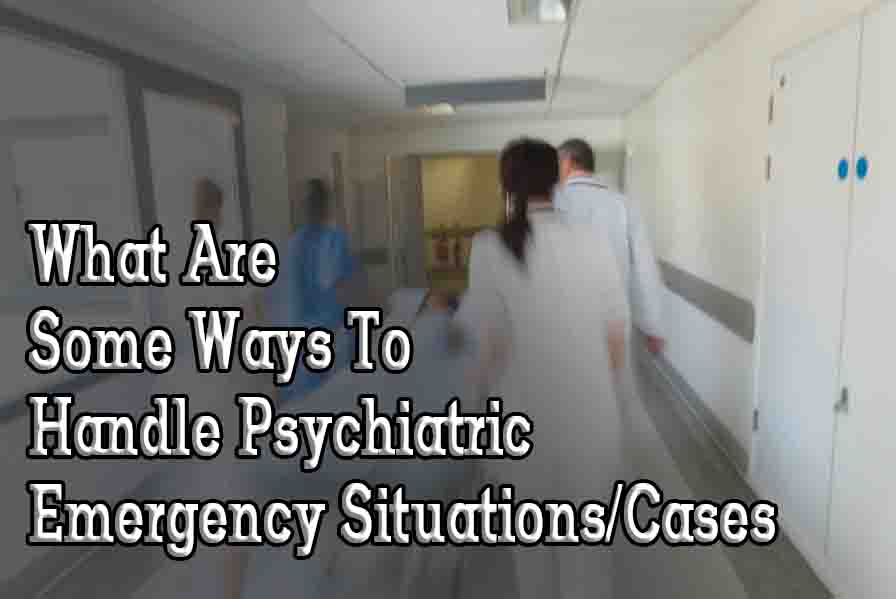Patients frequently initially interact with the mental health system in emergency departments and inpatient facilities. The units are, therefore, also places of entry, where ongoing services must be identified and arranged, except in unusual circumstances when additional services are not required following hospital release. As a result, there are now two main subgroups of acute inpatient populations: those who require the beginning of outpatient and other types of mental health treatment and those who already have a collection of services.
Although there are several methods for handling psychiatric crises, the fundamental principles remain the same. Some of the ways to cater to a psychiatric emergency are explored below for your understanding:
Table of Contents
Law-abiding Protocols:
Emergency psychiatric evaluation candidates are typically less compliant with patients. Their friends, family, or even the police could bring them in. There may be variations in civil commitment laws between states and even counties. Emergency department (ED) practitioners must thoroughly understand these laws to be applied with caution. Additionally, they need to understand what civil commitment entails and how it could impact a specific patient.
Familial Therapy:
Older adults with mental health crises may have various underlying physical and mental health issues. To find reversible conditions, the ED doctor must perform a thorough evaluation. Family members and many medical professionals vastly underestimate how well elderly patients will react to the therapy. Young and old patients both have an equal chance of recovering. However, older patients may require more time to reach remission. Although recovery rates for patients with irreversible dementia are far lower, the ED doctor can make a significant difference by suggesting suitable psychological and familial therapies.
Appropriate Treatment:
The assessment of the patient’s living environment and social networks, as well as a basic grasp of how they spend the day, are always included in the emergency evaluation (e.g., at work, at school, or in a day program). The baseline level of function for the patient is established through this evaluation. The patient’s health insurance should also be reviewed since it frequently determines the treatment programs offered as disposal choices.
Competent Professionals:
For paramedics to function well, three things are essential: knowledge, clinical decision-making expertise, and organizational characteristics. Their knowledge, attitude, skill, and self-efficacy in carrying out the work have all been proven to increase through educational courses. They will also be able to make better decisions on the spot.
Making judgments for mentally ill emergency patients may provide various challenges for emergency paramedics. To accurately diagnose the patients and manage plans, they should put safety first and concurrently evaluate the patients for any potential physiological, psychological, pathological, socio-cultural, and legal issues.
Summing Up:
Psychiatric crises are changes in a patient’s behavior that endanger them or others and need prompt therapeutic action (within a few hours or minutes) to stop harm. Severe self-neglect, self-harm, suicidal conduct, manic or depressed episodes, violent psychomotor agitation, significantly impaired judgment, drunkenness, or withdrawal from psychoactive drugs are the most common psychiatric emergency conditions.
In a disaster, the number of patients in emergency or epidemic scenarios may rise, but if the essential assistance has not been prepared for, it may be compromised. Even though there are several methods for handling psychiatric crises, the fundamental principles remain the same, particularly in making these services freely accessible to the general public.

